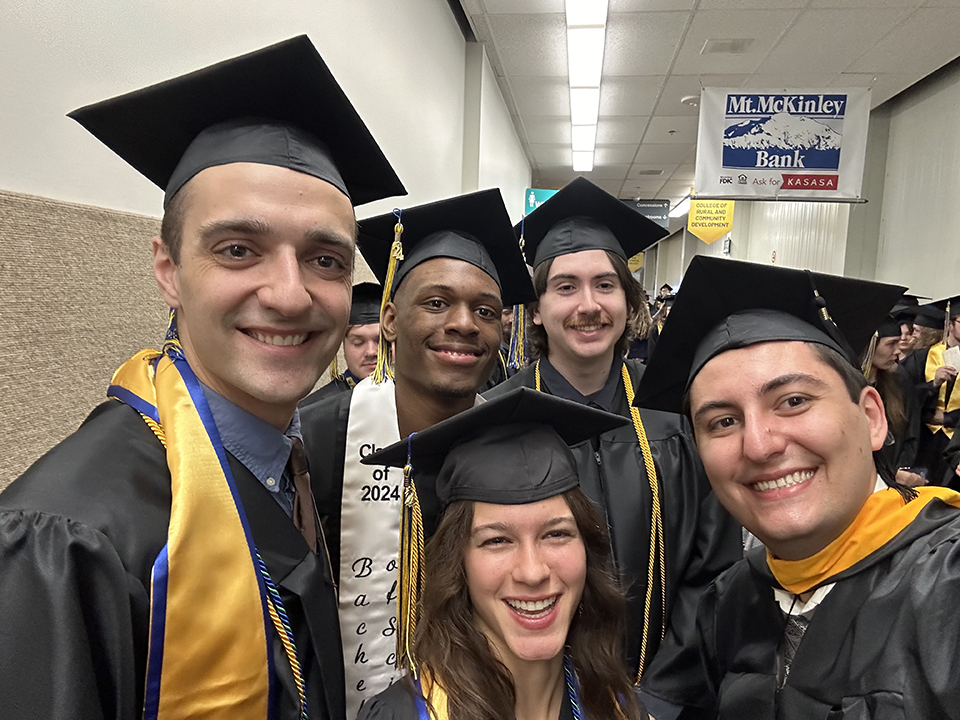Biomedical Learning and Student Training (BLaST)
Building the Alaska BLaST Program
Our BUILD-funded Biomedical Learning and Student Training (BLaST) program enhances the capacity for undergraduate biomedical research training and increases participation and engagement of students in pursuit of biomedical research careers.
Every facet of the United States scientific research enterprise—from basic laboratory research to clinical and translational research to policy formation–requires superior intellect, creativity and a wide range of skill sets and viewpoints. NIH’s ability to help ensure that the nation remains a global leader in scientific discovery and innovation is dependent upon a pool of highly talented scientists who will help to further biomedical research.
Research shows that scientists and trainees working together and capitalizing on unique ideas and perspectives can bring innovative approaches, creativity, and individual enterprise to address complex scientific problems. There are many benefits that flow from an NIH-supported scientific workforce, including: fostering scientific innovation, enhancing global competitiveness, contributing to robust learning environments, improving the quality of the researchers, and enhancing public trust.

BLaST Scholar graduates at the 2024 UAF Graduation Ceremony, Fairbanks, Alaska, May 2024. Back: Michael Martins, Christian Bolton, Gabriel Miller. Front: Kai Victorino and BLaST RAMP Nikola Nikolic. Congratulations on your graduation!
Announcements
BLaST is offering a spring in-person 2025 Mentoring Workshop March 31 and April 1st. The topics will be on best practices in mentoring, expanding your mentoring knowledge, and networking with all those attending.
UAF faculty, staff, and graduate students are encouraged to attend. Any questions, please contact Lori Gildehaus at lagildehaus@alaska.edu or ph. 907-474-5788.
Register today to secure your spot! Click here for registration.




